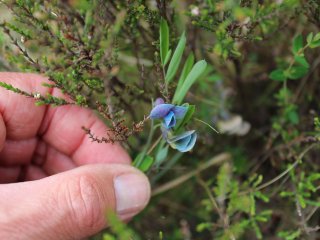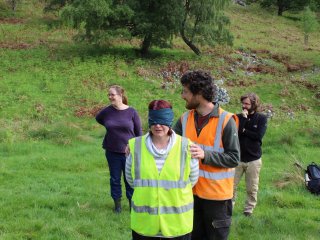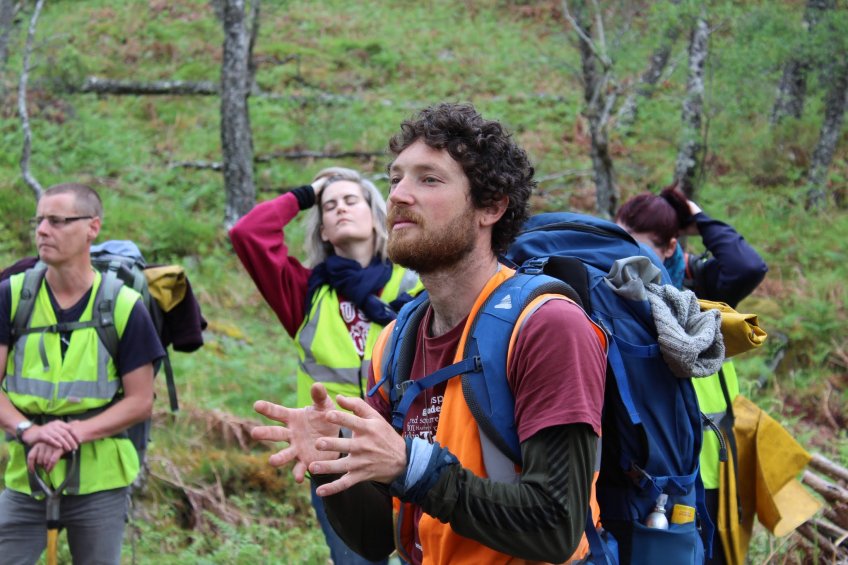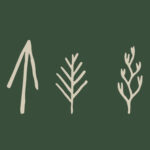Connecting with nature
The world of conservation can sometimes be quite focused on the accumulation of knowledge and facts – which is great! The natural world is endlessly fascinating, but could it be that focusing exclusively on this very intellectual kind of connection to things becomes an obstacle to a deeper, more emotional connection?

we engage all of our senses in nature.
Sometimes I will learn the name of a plant, mushroom or insect and then file it away and claim to myself (and everybody else) that I know it. I don’t actually know anything about it but its name. I wouldn’t claim to know a person with such limited information. The process of naming can sometimes abruptly end the ‘getting to know’ something fully. I know the name of this plant; it’s a twinflower – but what does it smell like? How does it feel to the touch? Which insects pollinate it? What are its favourite plant neighbours? Coming to know all of our surroundings and our neighbours with this depth of intimacy takes a lifetime yet could it not lead us to relate to the natural world in a way that could be more synonymous with love. How can we love what we do not know?
A passionate curiosity is cultivated when we engage all of our senses in nature. It is not so much about what we know, rather what we do not know. Curiosity is a skill, well for me at least, it is something I feel I am in the process of re-learning. Haven’t we all witnessed the power of curiosity weave its spell in small children? Who see with fresh eyes, hear with eager ears, smell with nosey nostrils and feel with hungry hands a world that is full of mystery, with endless secrets to be explored? Somewhere along the line, as adults, we seem to lose touch with this wonderment. All the magic that surrounds us as children withers when we are asked to fix our ideas to fit in with the fast-paced modern style of living and consuming. Some of us (or is it just me?) have a habit of carving our knowledge into stone.

visceral way is actually important work!
Practicing connecting to nature in a visceral way is actually important work! It can give us an opportunity to slow down and to reconnect with the natural pace and rhythm, the hum, buzz and bark of the forest. It is this sensory and grounded connection to things which will inevitably lead us humans to make important decisions to save, and become stewards of, our wild places as well as the wildness within us.
We always make space on our conservation weeks to facilitate this kind of connection. We invite volunteers to take time to sit and observe, to watch the clouds, listen to bird language, smell the earth, and feel a part of the land. We sometimes play games which give an opportunity to shift or expand our perspectives, what is it like to hunt or be hunted? What is it like to rely only on my sense of hearing or smell? How is it to sit and be still, to experience the forest as a tree does? Sometimes we get creative, writing haikus or telling stories, having an opportunity to express our personal love affairs with nature. Every week is different and a product of all the amazing passion and creativity that each volunteer brings with them.
It is a long process to re-imagine our value systems to be more in tune with nature. It may be generations before we start to see a nature based world view woven into all of our human decisions – but what a vision to hold on to! It is the cultivation of this both new and ancient connection to nature, the rewilding of human culture that will ultimately lead to the return of our wild places, the return of the Caledonian pinewoods!
Tom Morgan


